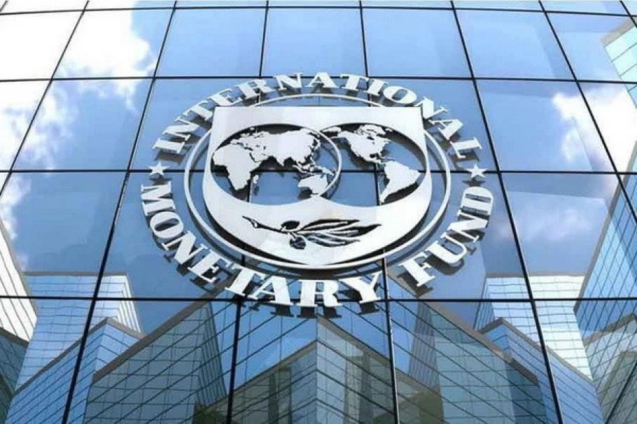The International Monetary Fund has lowered Ghana’s growth rate to 1.6% for this year, from the earlier projection of 2.8% in its April 2023 World Economic Outlook (WEO) Report.
This is coming after the World Bank cut the country’s growth rate forecast for this year to below 2%.
The Fund cited fiscal slippages as a result of high debt and budget deficit, reducing government spending in infrastructure and investments, as the major reasons.
It however predicted a 2.9% expansion of the economy in 2024.
For emerging market and developing economies, the report said economic prospects are on average stronger than for advanced economies, but these prospects vary more widely across regions.
On average, growth is expected to be 3.9% in 2023 and to rise to 4.2% in 2024.
The forecast for 2023 is modestly lower by 0.1 percentage point than in the January 2023 WEO Update and significantly below the 4.7% forecast of January 2022.
In low-income developing countries, Gross Domestic Product is expected to grow by 5.1%, on average, over 2023–24, but projected per capita income growth averages only 2.8% during 2023–24, below the average for middle-income economies (3.2%) and so below the path needed for standards of living to converge with those in middle-income economies.
A challenging outlook
The report said a return of the world economy to the pace of economic growth that prevailed before the bevy of shocks in 2022 and the recent financial sector turmoil is increasingly elusive.
“More than a year after Russia’s invasion of Ukraine and the outbreak of more contagious COVID-19 variants, many economies are still absorbing the shocks. The recent tightening in global financial conditions is also hampering the recovery”.
“As a result, many economies are likely to experience slower growth in incomes in 2023, amid rising joblessness. Moreover, even with central banks having driven up interest rates to reduce inflation, the road back to price stability could be long”, it explained.
Over the medium term, it said the prospects for growth now seem dimmer than in decades.
Downside risks
The report said the dominate risks to the outlook are squarely to the downside.
“Much uncertainty clouds the short- and medium-term outlook as the global economy adjusts to the shocks of 2020–22 and the recent financial sector turmoil. Recession concerns have gained prominence, while worries about stubbornly high inflation persist”.
“There is a significant risk that the recent banking system turbulence will result in a sharper and more persistent tightening of global financial conditions than anticipated in the baseline and plausible alternative scenarios, which would further deteriorate business and consumer confidence”, it added.
Latest Stories
-
Managing Prediabetes with the Help of a Dietitian
14 mins -
Joy FM listeners criticise Achiase Commanding Officer’s election comment
35 mins -
Legal Aid Commission employees threaten strike over poor working conditions
37 mins -
Ghana ranked 7th globally as biggest beneficiary of World Bank funding
47 mins -
IMF board to disburse $360m to Ghana in December after third review
51 mins -
Former Bono Regional NPP organiser donates 13 motorbikes to 12 constituencies
57 mins -
Securities industry: Assets under management estimated at GH¢81.7bn in quarter 3, 2024
1 hour -
Gold Fields Ghana Foundation challenges graduates to maximise benefits of community apprenticeship programme
3 hours -
GBC accuses Deputy Information Minister Sylvester Tetteh of demolishing its bungalow illegally
3 hours -
Boost for education as government commissions 80 projects
3 hours -
NAPO commissions library to honour Atta-Mills’ memory
3 hours -
OmniBSIC Bank champions health and wellness with thriving community walk
3 hours -
Kora Wearables unveils Neo: The Ultimate Smartwatch for Ghana’s tech-savvy and health-conscious users
3 hours -
NDC supports Dampare’s ‘no guns at polling stations’ directive
3 hours -
Police officer interdicted after video of assault goes viral
4 hours

